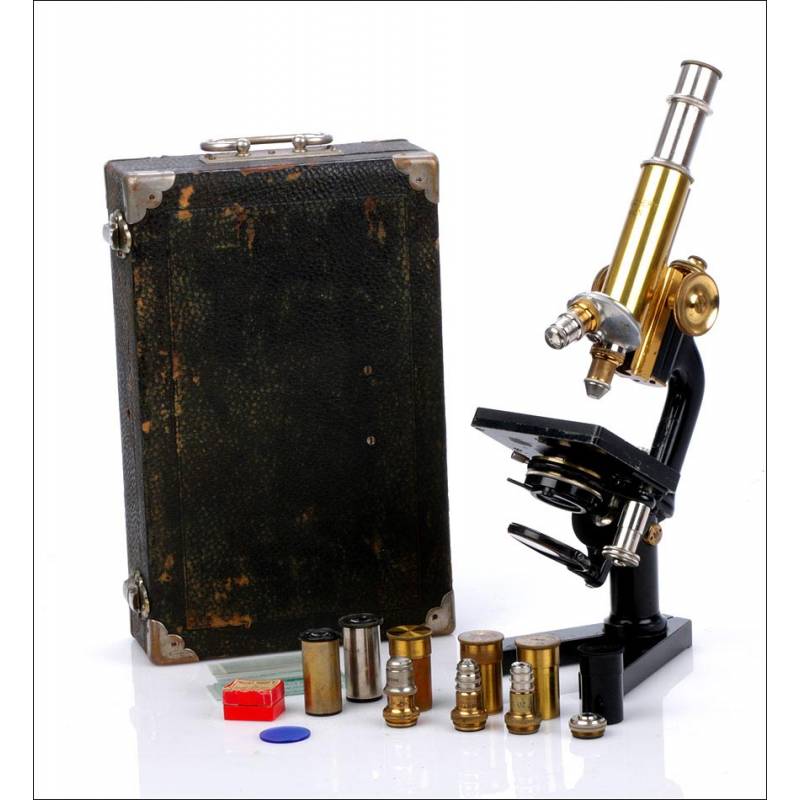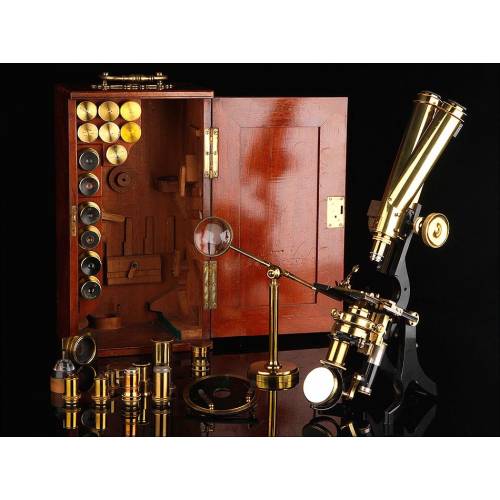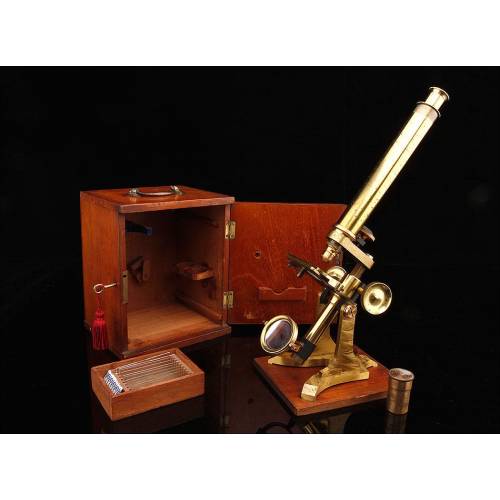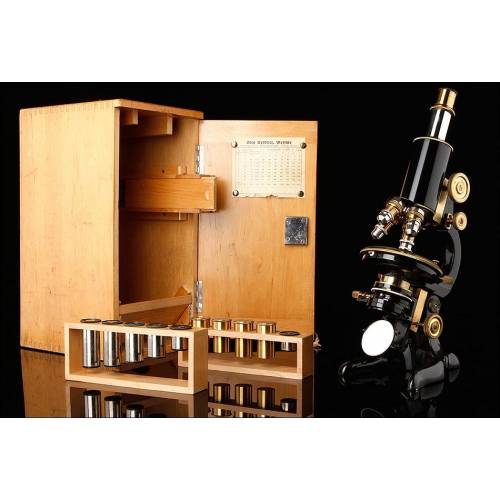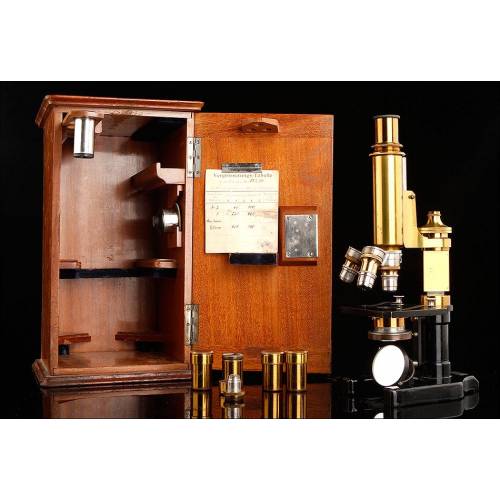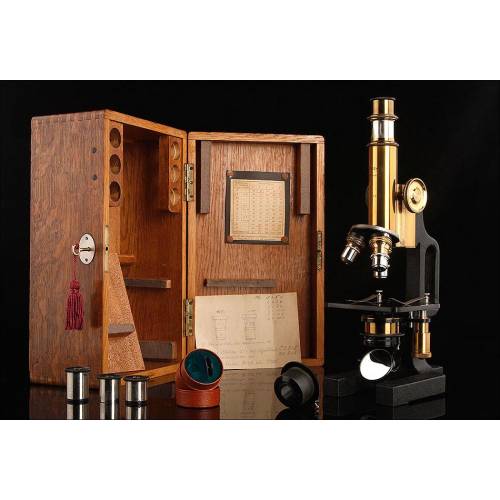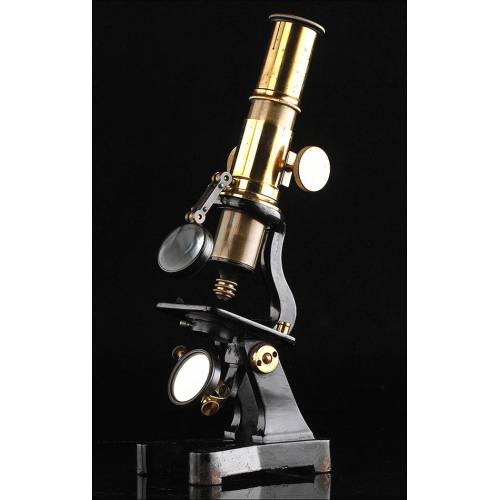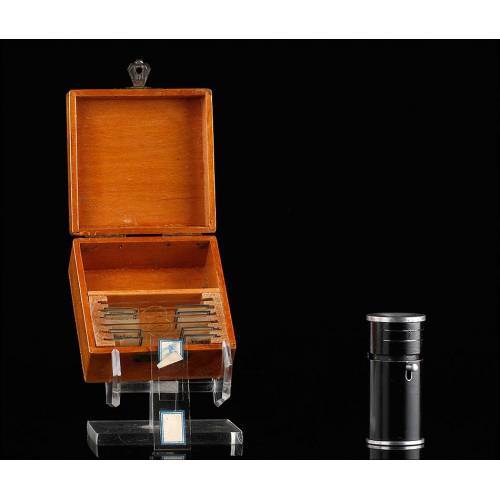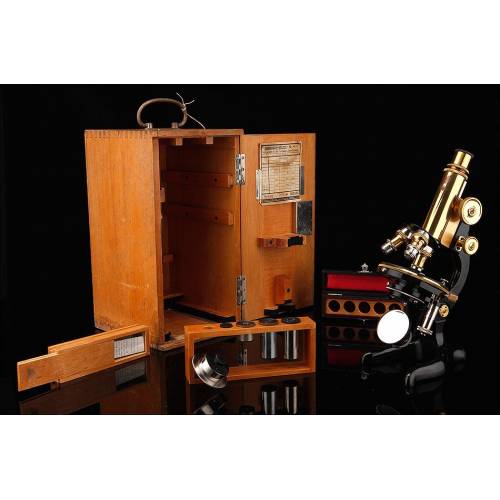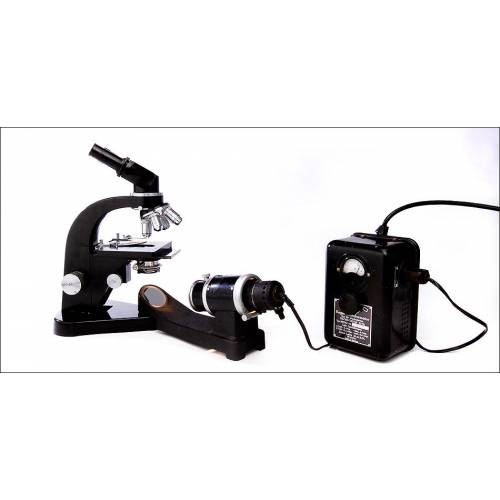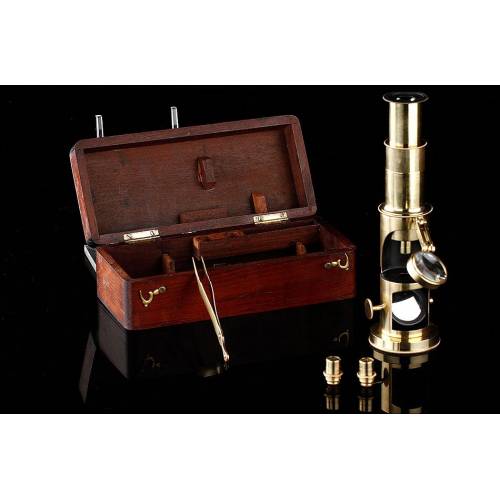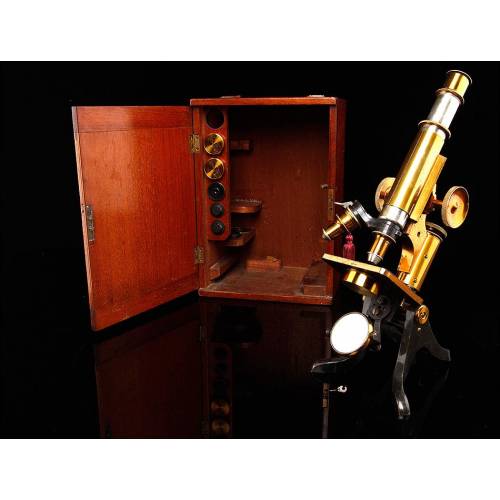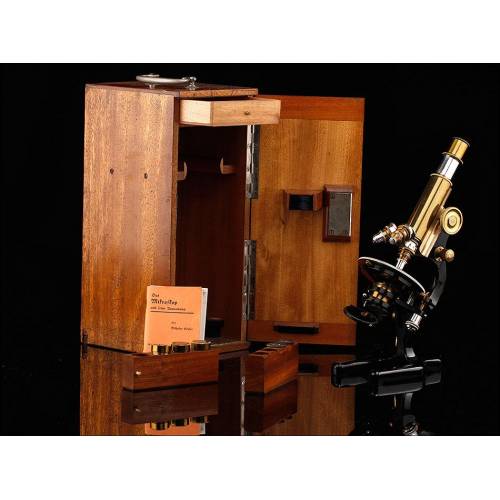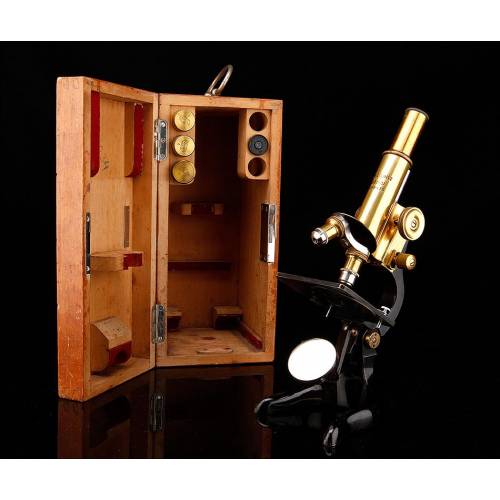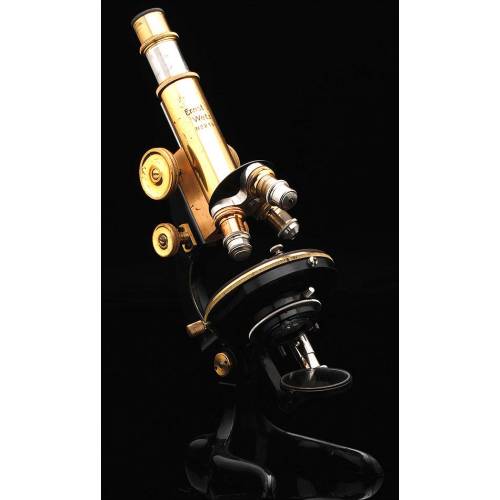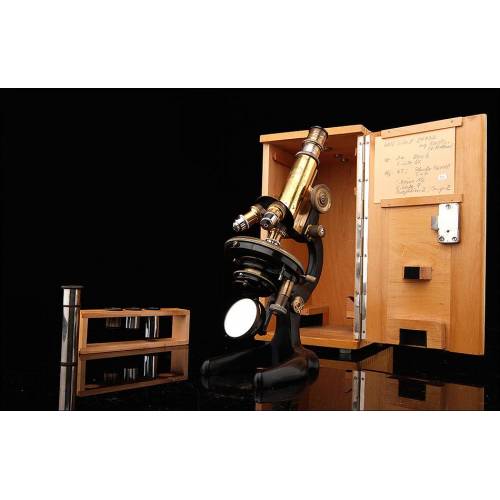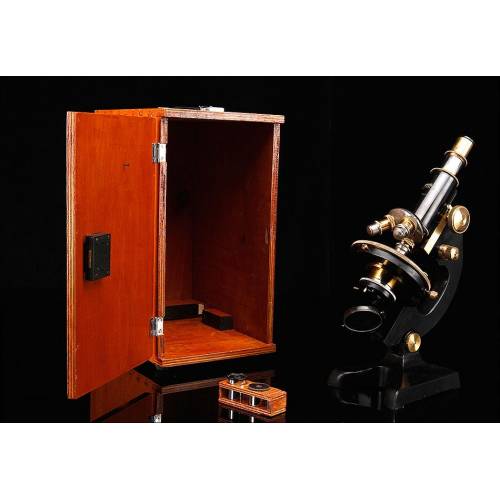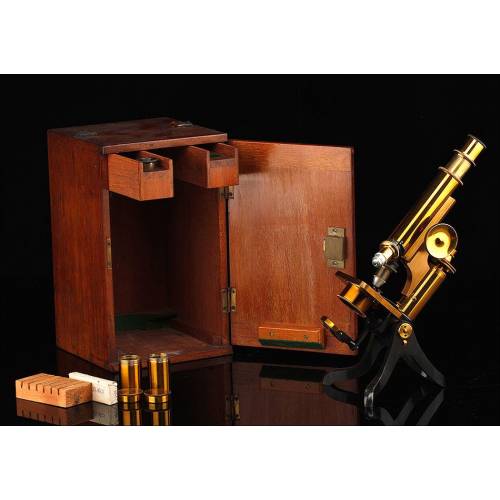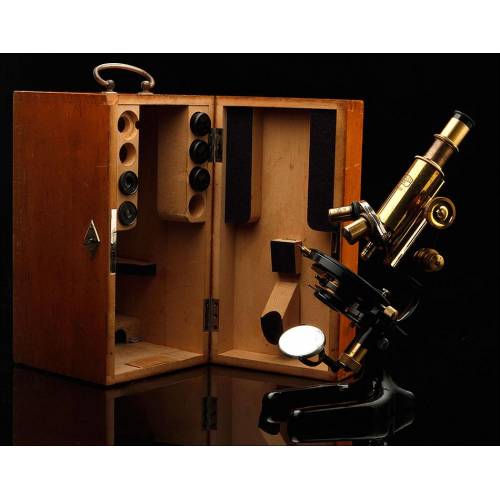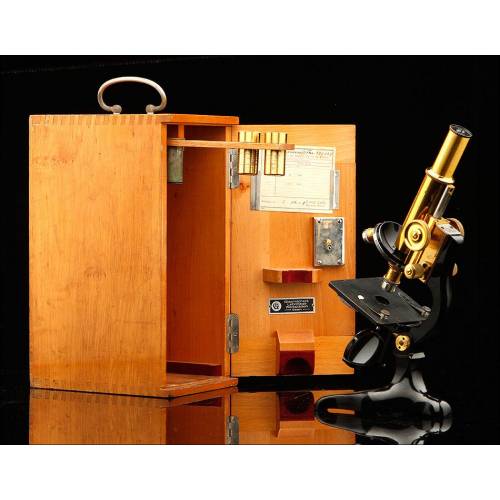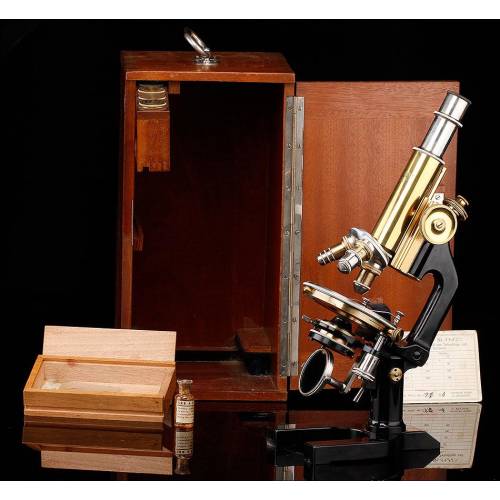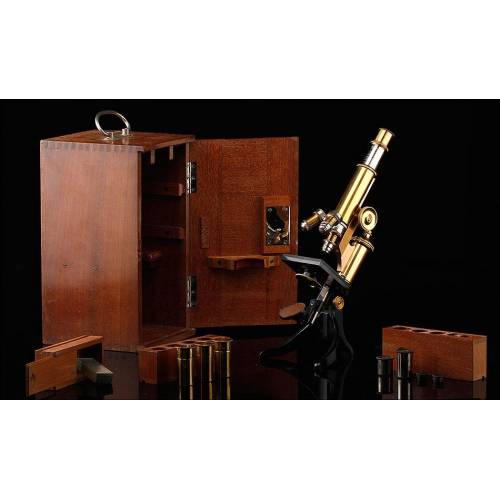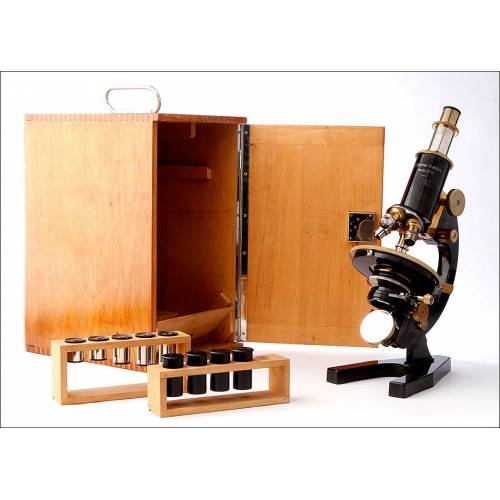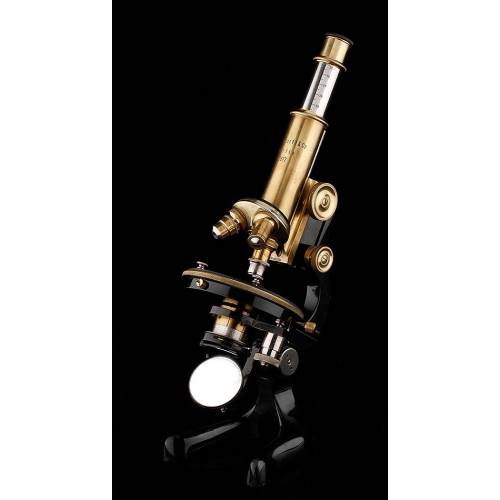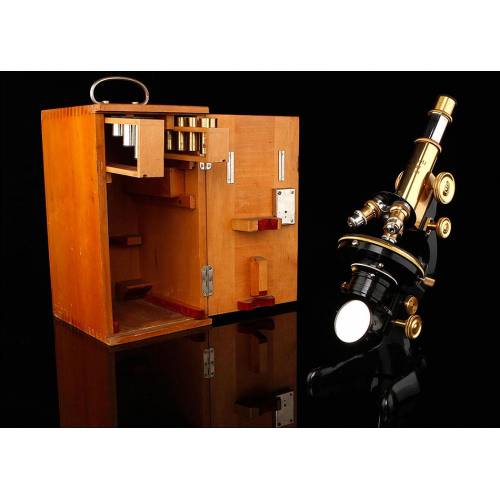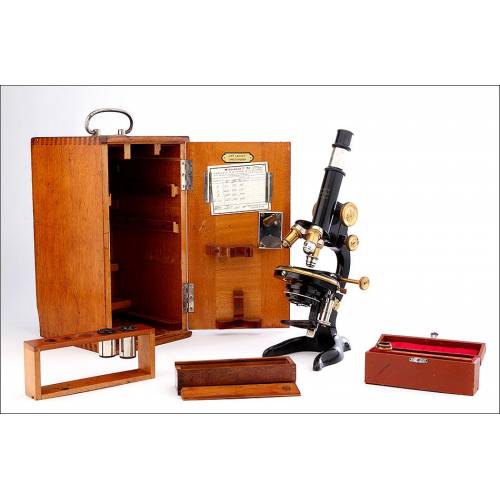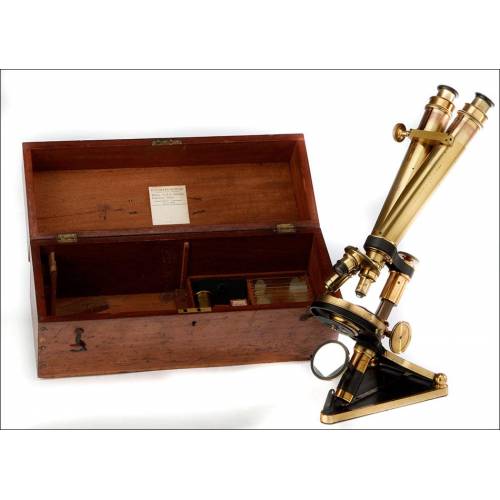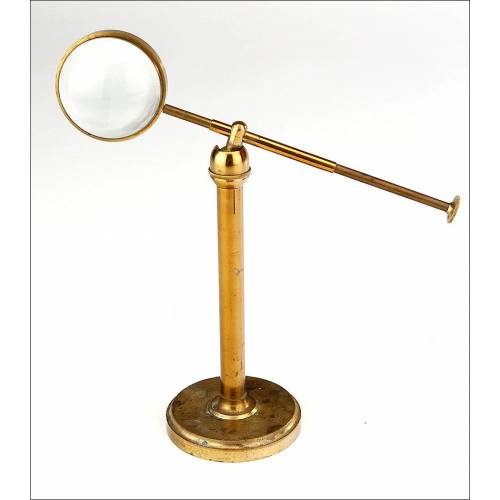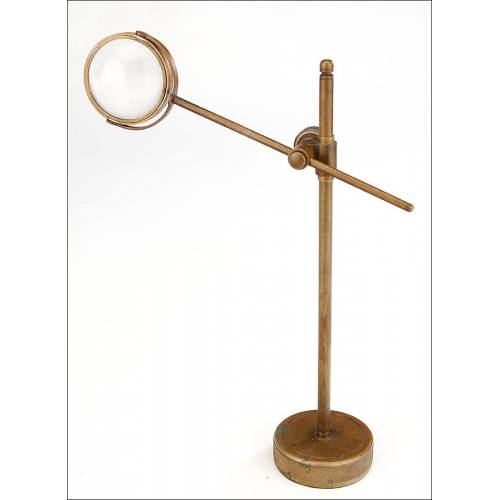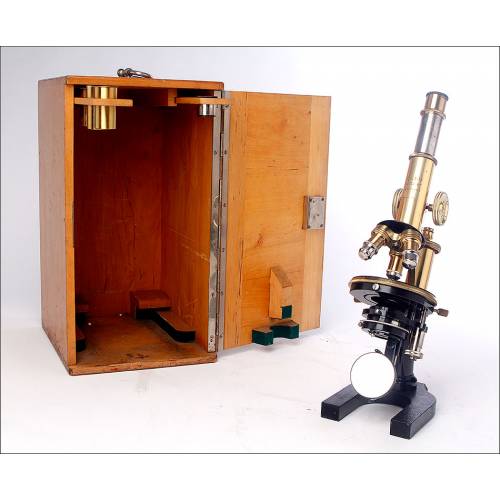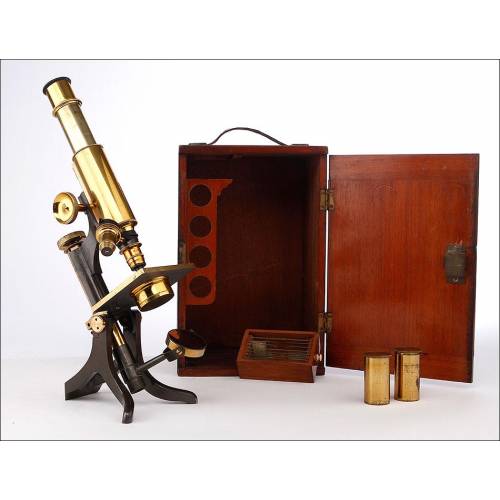C-448
Antique C. Reichter Folding Microscope. Complete. Vienna, Circa 1920.
Rare antique C. microscope. Reichter. Complete folding model, with all its accessories. It works perfectly and is presented in its original case.
Sold!
Antique and rare C. Reichter foldable microscope, in great condition and excellent working order. The microscope is dated circa 1920 and was manufactured in Wien, Austria by the famous company founded by the son in law of Ernst Leitz. The microscope has a black-lacquered cast iron structure; the black finish look really good. It is signed at the foot and in the turret. The mobile component parts are made of brass and chrome-plated metal; the brass preserves the original transparent finish, while the metal is in good condition too. The microscope mounts a two-lens revolving nosepiece and comes with a complete accessory set. The set includes six lenses (all of them in working order and signed by C. Reichter), three eyepieces, a blue filter, a set of sample plates and a box of square plates to cover the samples. The lenses are protected by their sleeves, all of them signed and numbered. Under the stage we can see the original double-sided mirror, concave and plane. Both the microscope and the accessories can be stored in the original case, a beautiful black-leather-covered suitcase. The microscope bears the serial number 58716 engraved at the foot; we can see this same number engraved in the wooden case too. For its rare configuration, its magnificent condition and its high quality, this antique foldable C. Reichter microscope deserves to belong to a good science museum. Measurements: Width: 5.51 in / 14 cm. Height: Min. 12.6 in - 32 cm / Max. 15.75 in - 40 cm. C. Reichter History The microscope company Reichter was founded by Carl Reichter, son-in-law of Ernst Leitz, in 1876. After learning the business with Leitz, he moved to Vienna, Austria and started his own company. By 1930 they had already manufactured their 100000th microscope. The firm carved a niche in the microscope-manufacturing field and kept on in business for some decades, but in 1962 the family sold the company to the American Optical Company. Six years after, this firm was acquired in turn by the pharmaceutical company Warner Lambert. After some mergings, in 1999 Reichter gave up making instruments and started preparing samples for transmission electron microscopes.

